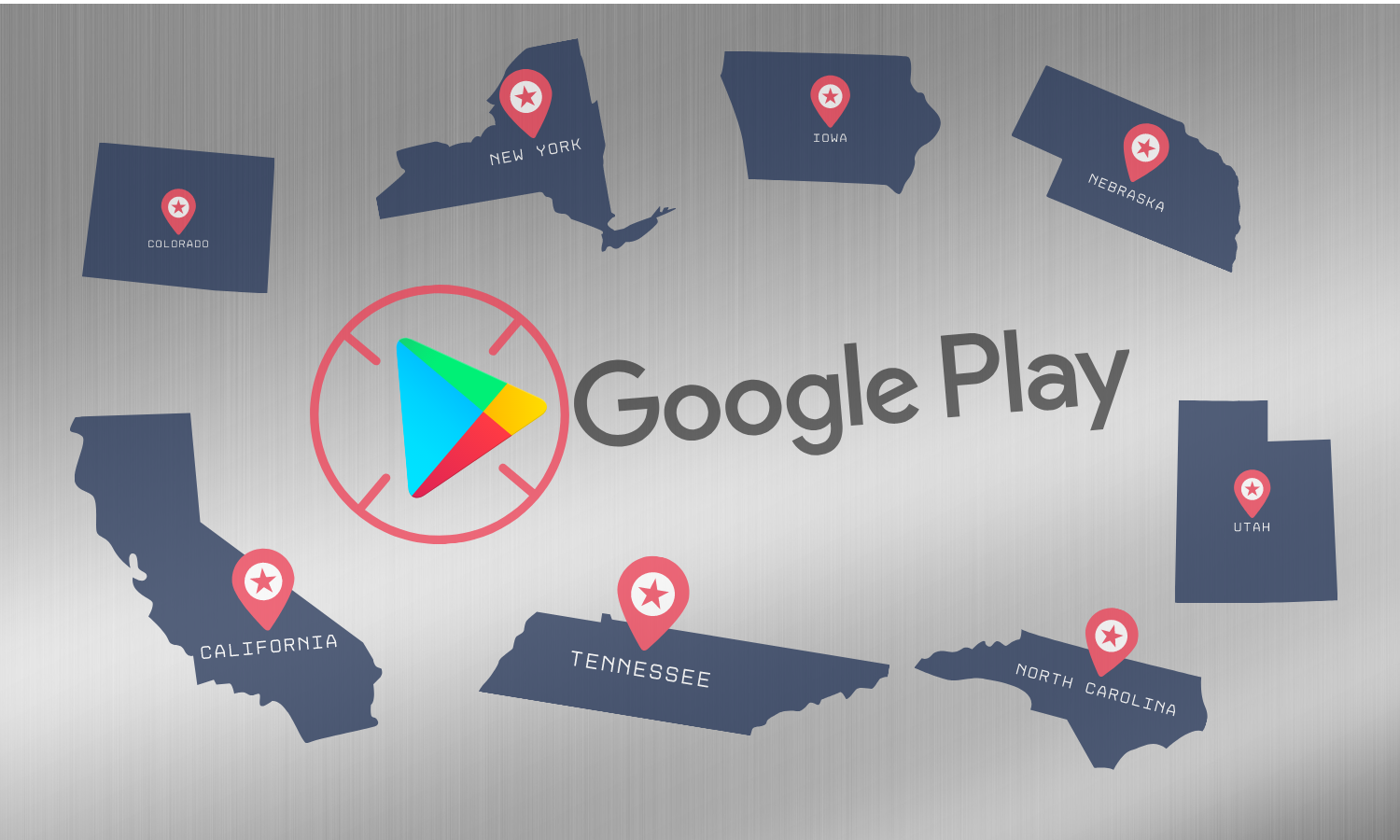Lawyers, economists, and software. Oh my.
The Attorneys General for 37 states and the District of Columbia filed an antitrust complaint this week against multiple Googles. The allegation, in rough translation, is that the Play Store is a monopoly. Let’s grade their paper, shall we? We’ll focus on their key assumptions and the supporting logical framework that attempts to tie it all together.
1) The complaint is plagiarized homework, embellished with misunderstanding.
For the last few years, Developers Alliance has been part of an Android court challenge in the EU. Suffice to say that the European Commission has strong opinions on the same topics the complaint explores, and after years of back and forth, they’ve polished their arguments but clung to their position – much of which the AGs have copied in their complaint. Like in the EU case, a basic grounding in how the app economy works, what roles developers, app stores and operating systems play, and how it all evolved, is useful background in understanding what it is today. By ignoring WHY things are the way they are, the AGs feel empowered to spin up monopoly theories where a simple business analysis would provide a lot of helpful insight.
2) Android has a monopoly in the market for … Android.
The tautology the whole thing hangs on is surprising to my developer colleagues. Antitrust law hinges on the definition of the market that is being analyzed — meaning you first need to properly define the market. If you can define a market that is small enough, you can get it down to a single company and call it a monopoly. As any developer knows, there are two major app stores – one for IOS and one for Android. There are also many Android stores around the world, however, including dozens in China. The reality though, is that developers don’t build apps for app stores; they build them for consumers. They want to reach as many consumers as they can while using the fewest number of app stores possible, because each additional store adds complexity, cost, time, and limited additional returns for their business. The AGs even go so far as to add the caveat “in the United States” to exclude foreign app stores and make their argument tighter. The question to focus on is WHY has the market developed in the way it has, with a couple of major stores and many small ones. Anyone that has studied these markets can tell you that there’s cause and effect pro-competitive factors at work.
3) The Play Store is the Android app store of choice because the market is efficient.
Why is the Play Store so successful? There are many reasons, best understood by looking at how app stores evolved from the “walled gardens” that preceded them. Most devs have at least heard of the once-dominant Nokia, or Blackberry, or even Microsoft. Today’s app store evolved in response to the experience of imbalance that plagued the early years of smartphones; too much control, followed by too little. The current app store market structure emerged as a compromise to the chaos or tyranny of the past. Google didn’t invent the app store, they built a business that encouraged third-party apps to emerge and to succeed and then put in the work to steward the ecosystem around them for the benefit of everyone. And yes, they made money doing it. Capitalism (last I checked) is still legal (and desired) in some countries.
4) Too many app stores is too many.
Developers build apps that are targeted at a specific mobile OS. For many, their next step is to port their work to as many competing OSs as necessary to reach market scale – and hopefully profitability. Along the way, they need distribution channels and the app stores provide this service, at a fee and with added overhead given each has rules, policies and nuances that a developer has to learn and master. The game theory here is to find the smallest number of app stores (the lowest overhead/cost) that reach the largest market (revenue!). Developers want the fewest number of app stores they can get away with provided that the ones they choose continue to innovate and treat them fairly. In the current market, two seems to be a good number, with the door left open for more if the two mess things up.
5) Managed Ecosystems benefit developers … so much so that they’re willing to pay for them.
There are two major models for smartphone ecosystems: open (like Android), and closed (like IOS). The fact that the two compete with each other proves that both are viable, and helps drive a lot of innovation for consumers and developers alike. But while closed systems are by definition stable, an open system is not. Whether it’s the “tragedy of the commons”, or a spiral of incompatible enhancements, or simply many hands that don’t know or care what they do to the code, open systems repeatedly fail without some discipline. For Android, Google has the role of overseeing the ecosystem stability developers greatly value. They discourage the fragmentation of subtle Android variations that make apps unreliable and drive up development costs. They police privacy and security practices that keep malware down and app quality up. All of which takes work, investment, and somebody willing to do it.
6) App stores are not run by charities.
Ask anyone whether they’d prefer to get something for free, or to pay for it, and their first answer is probably “yes”. Then ask them how long they’d expect that free service to be around, or whether it will improve over time, or even meet their minimum needs in a few months. Only 15% of the developers we asked chose “free” from our list of optional payment scenarios for app stores (which included simple platform cost or developer benefit models). Developers rely on tools, systems, training, services, marketing, brand, and a host of other benefits to make their app a business. Without the app stores, each and every developer would need to do those things themselves. App stores make our apps better, cheaper, and more consistent. Developers might debate just how these services should be paid for, but they don’t expect them to be free and need them to remain in place.
7) Device/OS/Store ecosystems compete for developers and consumers alike.
The fundamental, and perhaps willful, misunderstanding we hear from people outside our industry is that app stores don’t compete with each other. That’s ludicrous. The biggest digital platform players in the world are each other’s fiercest competitors. Compounding this mistake is the odd notion that smartphones are general-purpose computers (even though they also acknowledge there’s no market for competing mobile OSs). App stores serve a single OS, and OS and devices are designed for compatibility. The two major ecosystems compete for consumers using device choice, app availability, price, and features. People switch from one to the other every day. I’ve used the word “ecosystem” a million times in my career, and that’s not a lazy mistake. Moreover, if you want to sell a smartphone, you need to have the best apps you can get. Apps come from smart developers. Developers make a choice as to which platform they support. More and better developers means more and better apps means more happy consumers buying your services. App stores invest inc
redible amounts in their developer community to ensure they don’t shift their efforts to the rival ecosystem.
8) Consumers buy phones that work. Then they customize them.
Have you ever bought a smartphone that didn’t have a browser, or email, or maps or ANY apps beyond the phone? Of course not – and neither does anyone else. We’ve run consumer studies that prove people want phones to work out of the box, AND that they then load and unload dozens of apps to make them their own. Beyond that, most developers count on a few foundational OS apps to be in place and available as a complement to their own work. Developers don’t want to embed a browser in their own app – they want to just use the one that’s on the phone already. And consumers can and do swap default apps for even basic functions like email and mapping. But if they choose not to, that’s still okay, and if the OS owner makes money on their own apps, that’s their right and helps them re-invest in their service.
What Developers REALLY want: customer service from dynamic but humble partners.
All of this leads to the question, “if this complaint is out of touch with what developers want, is everything perfect?” No, there’s plenty to improve, just not at the expense of blowing up the ecosystem. In all our developer conversations, two consistent themes are that devs want to be treated like customers, not suppliers and that they resent the nameless, faceless, conglomerates that these platform companies have become (and that some developer corporations have become as well). Some developers remember the days when Google and its peers were scrappy startups themselves. They want a return to a time when questions were answered by real people, and there was a healthy respect for a partner’s business success. What they don’t want is government help, however. No one benefits when you ask mom to intervene when the kids disagree. Developers want to be heard, and they want a say in how our ecosystem evolves from here. No lawyers, no politicians, just a little grown-up conversation and an airing of views followed by a little respect and collaborative hard work.





